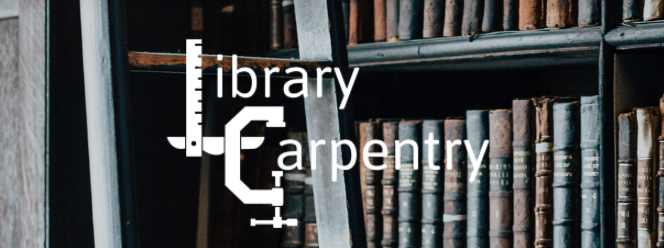In October, I joined a group of librarians and library graduate students for a two-day Library Carpentry workshop at UNC’s Davis Library. The workshop is part of a larger organization that extends all over the world to teach introductory skills for data management and digital tools. Our workshop was typical of their style and included two instructors who each taught sessions lasting half of the day: regular expressions and command line on day one, git and OpenRefine on day two. These skills appealed to me as a newcomer to the world of librarianship and digital scholarship, and I was eager to jump in, learn some new tools, and figure out how to use them in my job at the library. What I ended up getting out of the workshop was not quite that straightforward. I don’t use any of the tools in my day-to-day duties, and I’m certainly not an expert at regular expressions now. However, instead of gaining the hard skills that I expected to have magically bestowed upon me, I was exposed to a familiarity with the materials that has turned out to be just as useful.
When I set my expectations too high, I forgot that no one can learn how to use git through the command line in three hours—much less when they learned how to use the command line just three hours earlier. Though the workshop was billed as an introduction, I was overly-optimistic about the level of mastery I would achieve, which seems to be a common problem for frequenting these kinds of one-off workshops. The idea that you can leave knowing how to use all of these new tools is not realistic, but that doesn’t mean that these events aren’t valuable. I was never going to remember each button of the OpenRefine menu, but I do remember what the program is useful for, how I could apply it, and most importantly, how I could teach myself more. And these softer skills that I learned during the workshop kept popping up in the weeks afterwards.
During the Library Carpentry workshop, OpenRefine struck me as incredibly useful even though I struggled to remember all the commands. But even if I did forgot most of the specifics, I found that the concepts stuck with me in a much more tangible way. In a meeting to discuss potential careers, a digital repository librarian mentioned that people in her line of work use tools and write scripts to do their jobs. For specifics, she gave Python, and Javascript, and… OpenRefine. I wasn’t surprised to hear that program mentioned again, (it appears to be a popular one) but I was surprised that I knew what she was talking about.
And in that moment, I discovered that I hadn’t completely erased everything that I had learned from the Library Carpentry, and in fact remembered what was the most important part of any tool – what it does and why its useful. If I had been tested on my ability to clean large data sets with OpenRefine right there in the meeting, I would have been lost. But understanding the framework of the tool allowed me to able to ask competent questions and have intelligent exchange about her job – and maybe even discover a future career path. Library Carpentry didn’t give me mastery level knowledge of OpenRefine, but it did allow me to have an informed conversation with a colleague and get a quick understanding of the kind of work that she does.
I went into the Library Carpentry workshop hoping to come out with new lines for the “skills” section of my resume, an immediate understanding of data management and command line exploration. Obviously that isn’t what I got. What I took away instead was a basic understanding of four new(ish) ideas and how I could put them to use. I came away not with the ability to write regular expressions from scratch, but with the ability to read a regular expressions cheat-sheet and find what I need. In the end, not a mastery of the skill, but maybe the start of learning it on my own.
I would recommend a Library Carpentry or Data Carpentry workshop if you’re interested in learning or strengthening some new skills. Admittedly I have a background in computer science, but picking up a programming language or an entirely new application from scratch is always daunting. Library Carpentry gives a solid introduction to the self-taught experience in a way that is accessible for all skill levels. You get the groundwork on which you can build skills to your exact specifications—there are no shortcuts to mastery.
Image from https://librarycarpentry.org/


1 thought on “Library Carpentry Review: A Great Introduction to Digital Scholarship Skills”
Comments are closed.